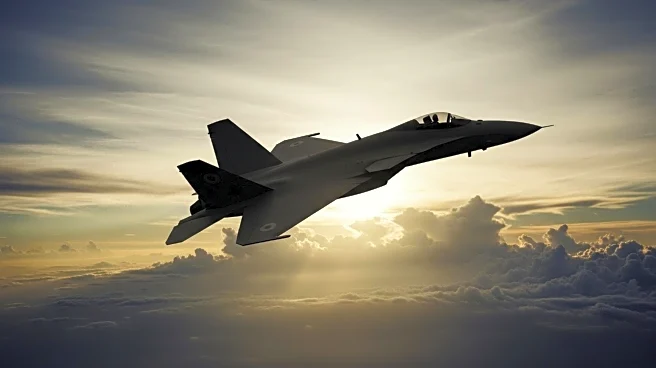What is the story about?
What's Happening?
Bangladesh's interim government has given preliminary approval for the acquisition of multirole combat and attack aircraft, along with new surface-to-air missiles and long-range radars. Air Chief Marshal Hasan Mahmood Khan announced the potential purchase of up to 20 J-10CE jets from China by 2027, with costs estimated at $2.2 billion, including training and spares. This move is part of Bangladesh's Forces Goal 2030 modernization plan, aimed at replacing its outdated fleet of Chinese-built F-7s and Russian MiG-29s. The decision follows discussions between Bangladesh's interim Chief Adviser Muhammad Yumus and Chinese President Xi Jinping.
Why It's Important?
The acquisition of advanced J-10CE fighters would significantly enhance Bangladesh's air defense capabilities, especially given its strategic position between India and Myanmar. The move could shift regional power dynamics, as Bangladesh would join China and Pakistan in operating these advanced jets. The decision also reflects Bangladesh's growing reliance on Chinese military technology, which may impact its relations with Western countries, including the United States. The modernization of Bangladesh's air force is crucial for maintaining national security and protecting its airspace and maritime territories.
What's Next?
An inter-ministerial committee led by Air Chief Marshal Khan will need to approve the purchase and negotiate terms with Chinese officials. The acquisition process will involve detailed discussions on pricing, training, and logistics. Bangladesh's decision may prompt reactions from neighboring countries, particularly India, which could view the move as a strategic challenge. The purchase could also influence Bangladesh's future defense partnerships and its geopolitical alignment in the region.
Beyond the Headlines
The decision to acquire Chinese fighters highlights Bangladesh's strategic balancing act between major powers. While the J-10CE offers advanced capabilities, Bangladesh must consider the long-term implications of deepening military ties with China, including potential diplomatic repercussions. The modernization plan underscores the importance of maintaining a robust defense posture amid regional tensions and evolving security challenges.














